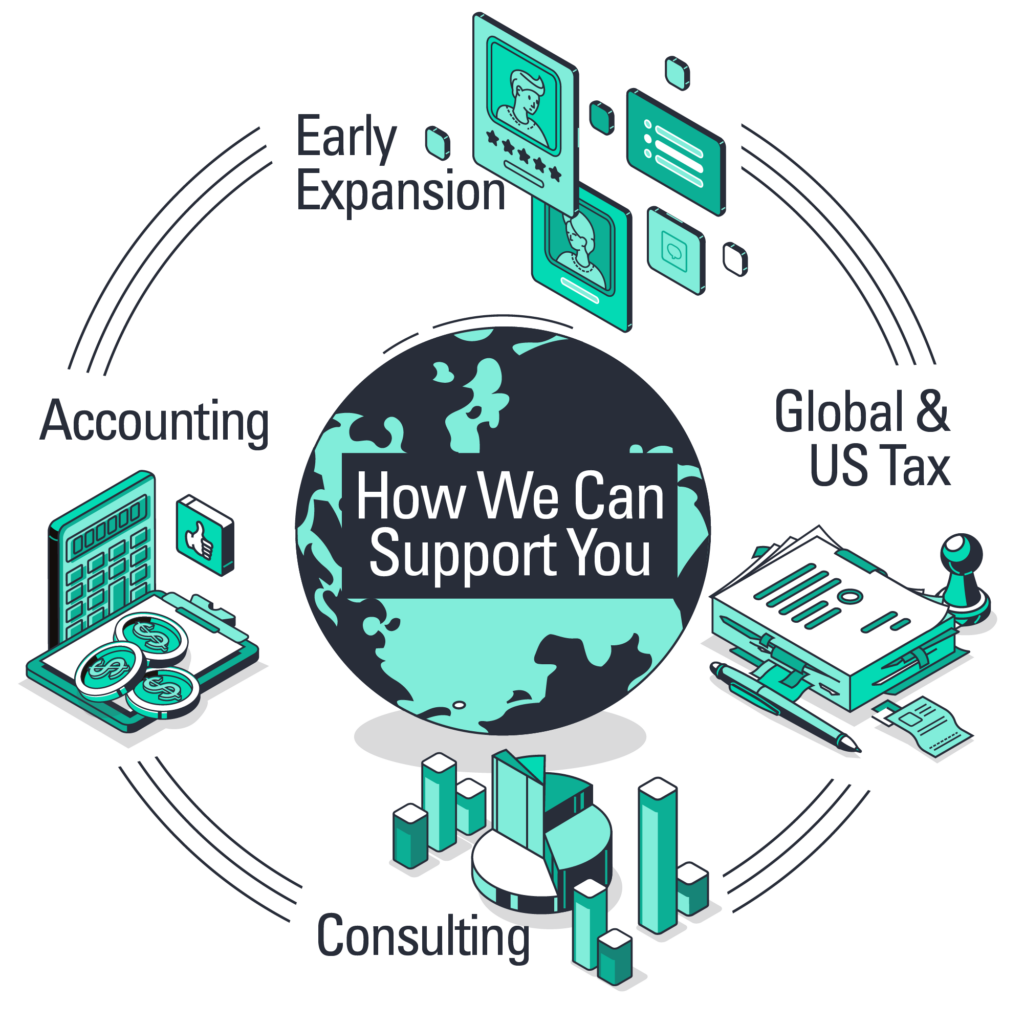Global Expansion & International Tax
We’ll help you understand the complexities of managing an international entity and guide you through the global marketplace.
Teresa Gordon
Shareholder, International
Teresa leads the firm's international group and supports global businesses through all phases of growth as they expand to and from the U.S.
Sue Tuson
Shareholder, International Tax
As an international tax advisor, Sue helps businesses structure their operations globally to mitigate tax costs and maximize profits.
International Tax
Helping you fulfill international tax obligations
Our international tax team works with U.S. companies expanding abroad and foreign companies establishing a presence in the U.S. with their international tax obligations. Throughout our history, we’ve provided invaluable financial, operational and tax planning strategies.
Our tax team can help with:
- Foreign tax credits
- Permanent establishment
- Interest Charge – Domestic International Sales Corporation
- Repatriation of foreign earnings
- Reorganization and entity structure
- Sales and Use Tax and Value Added Tax
- Treaty analysis
- International accounting




International Accounting
Specialized accounting services to improve your profitability
Coordinating financial statements across borders can be a challenge. Are you able to easily manage the reporting requirements from country to country? Is your foreign parent company receiving the information it needs when it needs it? If not, we can help.
Whether you’re a foreign-owned company growing or starting a U.S. subsidiary, or a domestic company expanding your footprint around the world, our international experts will provide you with specialized accounting services to help you achieve profitable growth no matter where you are in the world.
Our accounting team can help with:
- Transactional accounting and closing support
- Structuring operations globally
- International consulting
- Financial statement preparation (local country or U.S. GAAP, IFRS)
- Audits and reviews of closely-held businesses including group audit packages
- Internal control analysis
- Cloud-based accounting software solutions
Foreign Direct Investment
Supporting your expanding operations
Are you ready to establish or expand operations in the U.S.? Our Foreign Direct Investment team can provide customized accounting, tax, and business consulting services to meet your specific needs so you can focus on growing your business.
Having the knowledge required to start your business in the U.S. correctly is extremely important. The decisions made now will set the course for the future. With our knowledge and experience helping companies enter the U.S. market, we can streamline the process of starting your business while avoiding costly surprises.
There are many details which must be considered thoroughly to make the execution of your U.S. expansion a success. In addition to providing accounting and tax services, our team takes on the role of an advisor. If there are gaps in your U.S. resources which need to be filled, we’ll help shore them up.
As your business grows, accounting and tax needs change. The FDI team is skilled in anticipating these changes and accessing the firm’s full range of services. We can also help you successfully manage transition and tax-planning opportunities to capitalize on growth opportunities unique to your company.


Global Expansion
Maximize your profits worldwide
There is significant opportunity in the global marketplace, and the Clayton & McKervey team is here to help. We have helped U.S-based companies expand their businesses across the world; with a concentration on Mexico. Our team understands the multinational tax and financial reporting issues you will face, and can provide introductions to experienced professionals around the world through our international affiliations.


Teresa Gordon
Shareholder, International
Teresa leads the firm's international group and supports global businesses through all phases of growth as they expand to and from the U.S.
Sue Tuson
Shareholder, International Tax
As an international tax advisor, Sue helps businesses structure their operations globally to mitigate tax costs and maximize profits.
Want to Learn More?
Discover more insights around Global Expansion & Growth directly from your team members.






